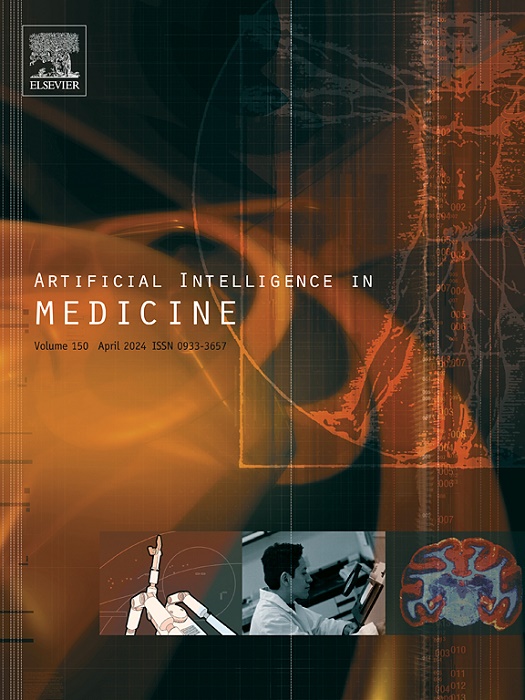From black box to clarity: Strategies for effective AI informed consent in healthcare
IF 6.2
2区 医学
Q1 COMPUTER SCIENCE, ARTIFICIAL INTELLIGENCE
引用次数: 0
Abstract
Background
Informed consent is fundamental to ethical medical practice, ensuring that patients understand the procedures they undergo, the associated risks, and available alternatives. The advent of artificial intelligence (AI) in healthcare, particularly in diagnostics, introduces complexities that traditional informed consent forms do not adequately address. AI technologies, such as image analysis and decision-support systems, offer significant benefits but also raise ethical, legal, and practical concerns regarding patient information and autonomy.
Main body
The integration of AI in healthcare diagnostics necessitates a re-evaluation of current informed consent practices to ensure that patients are fully aware of AI's role, capabilities, and limitations in their care. Existing standards, such as those in the UK's National Health Service and the US, highlight the need for transparency and patient understanding but often fall short when applied to AI. The “black box” phenomenon, where the inner workings of AI systems are not transparent, poses a significant challenge. This lack of transparency can lead to over-reliance or distrust in AI tools by clinicians and patients alike. Additionally, the current informed consent process often fails to provide detailed explanations about AI algorithms, the data they use, and inherent biases. There is also a notable gap in the training and education of healthcare professionals on AI technologies, which impacts their ability to communicate effectively with patients. Ethical and legal considerations, including data privacy and algorithmic fairness, are frequently inadequately addressed in consent forms. Furthermore, integrating AI into clinical workflows presents practical challenges that require careful planning and robust support systems.
Conclusion
This review proposes strategies for redesigning informed consent forms. These include using plain language, visual aids, and personalised information to improve patient understanding and trust. Implementing continuous monitoring and feedback mechanisms can ensure the ongoing effectiveness of these forms. Future research should focus on developing comprehensive regulatory frameworks and enhancing communication techniques to convey complex AI concepts to patients. By improving informed consent practices, we can uphold ethical standards, foster patient trust, and support the responsible integration of AI in healthcare, ultimately benefiting both patients and healthcare providers.
从黑箱到清晰:医疗保健中有效的人工智能知情同意策略
知情同意是道德医疗实践的基础,确保患者了解他们所接受的程序、相关风险和可用的替代方案。人工智能(AI)在医疗保健领域,特别是诊断领域的出现,带来了传统知情同意书无法充分解决的复杂性。人工智能技术,如图像分析和决策支持系统,提供了显著的好处,但也引发了有关患者信息和自主权的伦理、法律和实际问题。人工智能在医疗诊断中的整合需要重新评估当前的知情同意做法,以确保患者充分了解人工智能在其护理中的作用、能力和局限性。现有的标准,比如英国国家医疗服务体系(National Health Service)和美国的标准,强调了透明度和耐心理解的必要性,但在应用于人工智能时往往存在不足。“黑匣子”现象(即人工智能系统的内部运作不透明)构成了一个重大挑战。缺乏透明度可能导致临床医生和患者对人工智能工具的过度依赖或不信任。此外,目前的知情同意过程往往无法提供有关人工智能算法、它们使用的数据和固有偏见的详细解释。医疗保健专业人员在人工智能技术方面的培训和教育也存在显著差距,这影响了他们与患者有效沟通的能力。伦理和法律方面的考虑,包括数据隐私和算法公平性,在知情同意书中往往没有得到充分解决。此外,将人工智能集成到临床工作流程中存在实际挑战,需要仔细规划和强大的支持系统。结论本综述提出了重新设计知情同意表的策略。这些措施包括使用简单的语言、视觉辅助和个性化信息来提高患者的理解和信任。实施持续监测和反馈机制可以确保这些形式的持续有效性。未来的研究应侧重于制定全面的监管框架和加强沟通技术,以向患者传达复杂的人工智能概念。通过改进知情同意实践,我们可以维护道德标准,培养患者信任,并支持人工智能在医疗保健中的负责任整合,最终使患者和医疗保健提供者都受益。
本文章由计算机程序翻译,如有差异,请以英文原文为准。
求助全文
约1分钟内获得全文
求助全文
来源期刊

Artificial Intelligence in Medicine
工程技术-工程:生物医学
CiteScore
15.00
自引率
2.70%
发文量
143
审稿时长
6.3 months
期刊介绍:
Artificial Intelligence in Medicine publishes original articles from a wide variety of interdisciplinary perspectives concerning the theory and practice of artificial intelligence (AI) in medicine, medically-oriented human biology, and health care.
Artificial intelligence in medicine may be characterized as the scientific discipline pertaining to research studies, projects, and applications that aim at supporting decision-based medical tasks through knowledge- and/or data-intensive computer-based solutions that ultimately support and improve the performance of a human care provider.
 求助内容:
求助内容: 应助结果提醒方式:
应助结果提醒方式:


